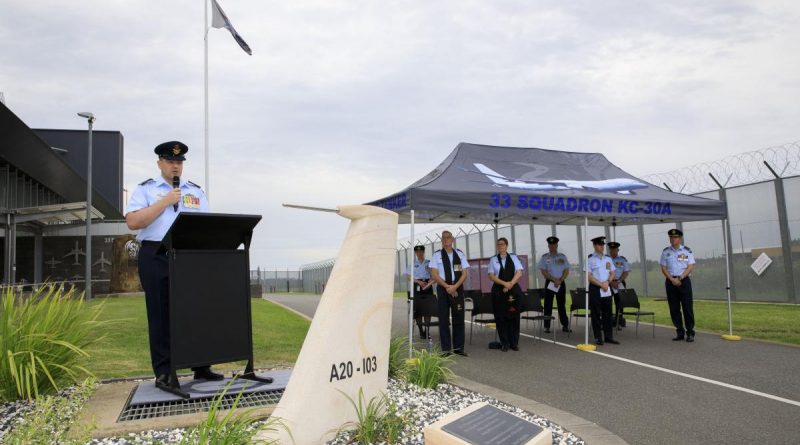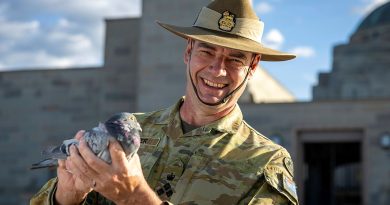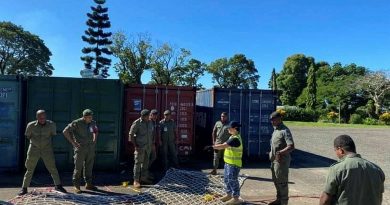Remembering lost aviators of Windsor 380

On October 29, 1991, an accident off the coast of Gippsland took the lives of five aviators during a training flight on a Boeing 707 jet transport.
CAPTION: Commanding Officer No. 33 Squadron Wing Commander Neil Bowen at the commemorative service in the Wilberforce memorial garden at RAAF Base Amberley, Queensland. Story by Eamon Hamilton. Photo by CPL Brett Sherriff.
Thirty years on, family members of the crew came together with present-day No. 33 Squadron for a memorial service at RAAF Base Amberley.
Together they honoured the memory of Squadron Leader Mark Lewin, Flight Lieutenants Tim Ellis and Mark Duncan and Warrant Officers Jon Fawcett and Al Gwynne.
The memory of the five aviators has not diminished over the three decades according to No. 33 Squadron Commanding Officer Wing Commander Neil Bowen.
“I joined after the 707 accident occurred, and I can only imagine the shock and dismay that spread throughout the RAAF on that fateful day,” Wing Commander Bowen said.
“For the entirety of my career, the unimaginable tragedy of that accident has underpinned everything we do in aviation safety.
“Our entire safety culture today has a point of origin in the catastrophe of October 29, 1991.”
On that morning, the crew boarded a four-engine Boeing 707 at RAAF Base Richmond and departed on a training mission with the call sign ‘Windsor 380’.
The aircraft – serial number A20-103, but named ‘Wilberforce’ by No. 33 Squadron – conducted a landing circuit at RAAF Base East Sale before climbing off the Gippsland coast.
The crew conducted a training sequence to simulate a double-engine failure while flying at minimum speed, but lost control of the aircraft and could not safely recover.
‘Windsor 380’ crashed a kilometre off the coast with the loss of all crew. The accident investigation highlighted shortcomings in the Boeing 707 aircrew training syllabus.
The accident also exposed a weakness in how bereaved families were supported by Air Force, leading Squadron Leader Kay Ellis – the widow of Flight Lieutenant Tim Ellis – to drive change.
“Based on her own experiences following the accident, Squadron Leader Ellis drafted the ADF Commander’s Guide to handling service death in 2008,” Wing Commander Bowen said.
“In her prefatory material, explaining why she wrote that book, Kay closes by saying: ‘It is only by critically examining the past that we can hope to improve the future’.
“It courageously covers a difficult topic and I found myself both grateful for her written guidance and for never needing to rely on it directly.”
A crew attendant with No. 33 Squadron, Warrant Officer Lara Cluff, said the 30th anniversary of the accident provided an opportunity to dedicate a new memorial at RAAF Base Amberley.
“The squadron has installed a sandstone monument in the shape of a Boeing 707 tail, with stainless steel antenna and engraved with the aircraft number,” Warrant Officer Cluff said.
“The new memorial is an enduring feature. It has pride of place at the gateway of 33 Squadron.”
Warrant Officer Cluff first joined No. 33 Squadron at RAAF Base Richmond in the late 1990s and said the legacy of the accident has remained throughout her service.
“It’s an exceptional reminder for every aviator and it hits quite hard when you consider how dangerous flying can be, not just on operations but in a training environment,” she said.
RAAF Base Richmond also held a 30th anniversary memorial service, which provided an opportunity for relatives, friends and colleagues of the crew to remember their loss.
.
.

.
.





